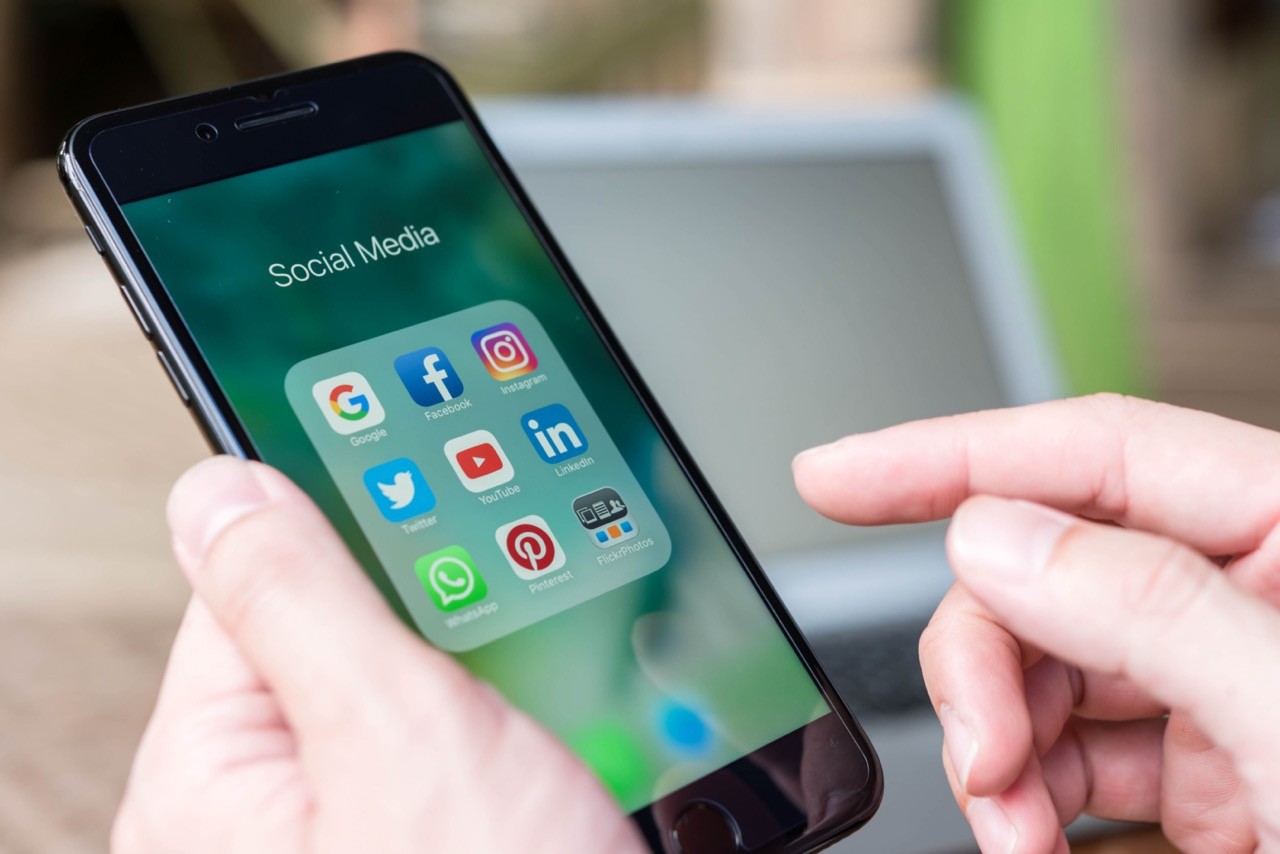Unveiling the Social Media Dilemma
Social media has been the focus of criticism in recent years, it creates joy but also puts people on the verge of despair, and people are starting to wake up to the ills of modern social networking sites. Plus, the big question here is: When will regulators come for the new Silicon Valley giants?
Facebook recently suffered an incident - a massive global outage that shut down its main site, Instagram and WhatsApp platforms for roughly six hours, and a prominent social media critic said the incident proves how controlling the company truly is.
To expand educational access and draw as many people's attention as possible, Netflix has made a Documentary - The Social Dilemma available on a free platform - YouTube, a seven-time Emmy-nominated documentary that examines the dark side of social media, to deliver an alarming message about how social media controls and manipulates us.
The film features interviews with former employees, who were integral to the early development of these companies from today world's largest social media platforms. Ex-Big tech owners are taking advantage of this unique opportunity by spreading the word, sharing the message of the true hidden terror behind the curtain of social media for someone who needs to see it. The documentary follows Skyler Gisondo and Vincent Kartheiser as they point out the dangerous effects social media platforms like Facebook, Instagram, and Twitter have on the average citizen.
"It's apparent now more than ever how powerful they are, how much impact they have on our economy, how much potential impact to have on national security, and the reality is we need to start utilizing this tool and regulating this tool as if it were a utility," ex-Google consultant Joe Toscano told Fox News Digital.
The Social Dilemma, directed by Jeff Orlowski, is a documentary that brings to light the dangers of social media and its ability to capture and hold the attention of its users against their will. Furthermore, the creators have created a dedicated resource hub for the Mental Health Dilemma for the audience to host a conversation using The Social Dilemma to discuss the connection between the extractive nature of Big Social and our mental health.
Current and former Silicon Valley bigwigs weigh in, including Tristan Harris, who gives one of the scariest revelations in the documentary: "if you're not paying for the product, you are the product."
Our attention is the product yet mental health is not for sale
Many social media companies, especially Facebook, succeed by capturing as much of our attention as they can, then selling that attention to the highest bidders. As the saying goes, if you’re not paying for the product, you are the product.
Certainly, 'this can be a bad thing," stated Tim Wu, Columbia Law School Professor and author of the book The Attention Merchants. Tim Wu defines attention merchants as enterprises that sell access to people's thoughts, in an interview with Vox. “The attention industry needs people who are in a distracted state, or who are perpetually distractible, and thus open to advertising,” he said.
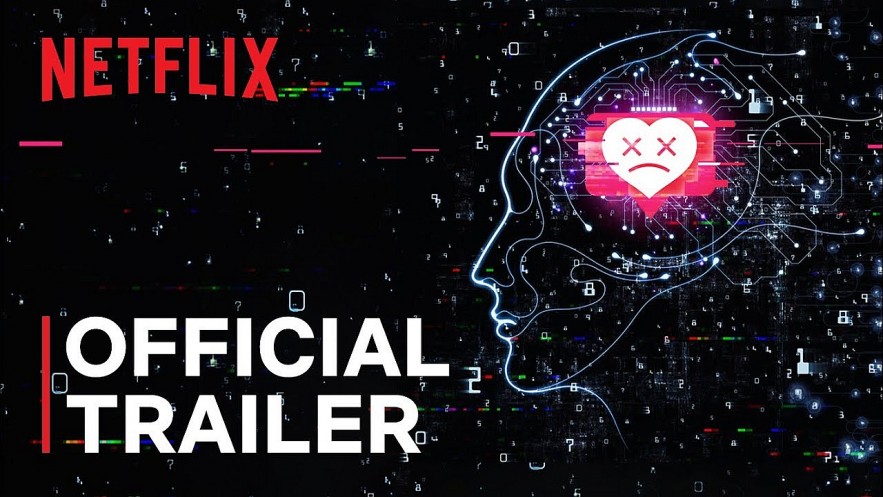 |
| Netflix Documentary unveiling dark secrets of Social media. Photo: Netflix |
He was simply mentioning the situation when you picked up your phone with one task in mind and an hour later realized you spent the whole time scrolling through various social media sites having completely forgotten why you picked up your phone in the first place.
Wu quotes American philosopher and psychologist William James, “Your life experience is what you choose to pay attention to.” In the interview with Vox, Tim Wu helps us acknowledge that companies are capturing and manipulating our attention and whether if we are in control with our own lives.
Basically stated, the more time you spend on social media, the more these companies will benefit from you.
Social networking sites are designed for people to be addicts
According to the documentary, many people who have been involved in creating the tools and the algorithm for Facebook and Google believe that they were just contributing another extension into the applications without realizing it could harvest human information and have such a negative effect on the users' mental health.
The Social Dilemma points out that many social networks exploit human weakness by designing with the idea called positive intermittent reinforcement in mind.
One of the specialists interviewed in the film, Tristan Harris, a former Google design ethicist, compares it to a Vegas slot machine. When we check our phones for notifications, it's like pressing the lever on a slot machine in the hopes of hitting the jackpot.
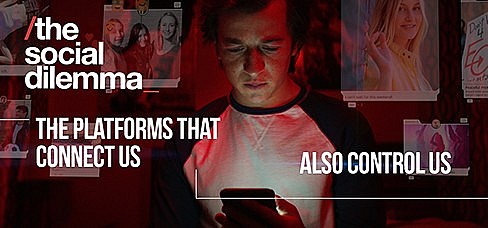 |
| Alarming message we need to face. Photo: Netflix - The Social Dilemma |
According to Mike Brooks, Ph.D., in an article written for Psychology Today, we have a difficult time resisting our screens because of this “Vegas effect.” Because we occasionally hit the jackpot, so to speak, when we check and there are notifications on our phone, we continue to check and check and check.
“Like a box of chocolate, we never know what we are going to get. Who posted to Facebook? Who commented on my post? Let me check my news feed just one more time… the moment our smartphones buzz or chime, this dopamine reward system is activated,” Brooks says.
Too much screen time long-term led to an epidemic of “distraction sickness.” This is where you are unable to concentrate and you constantly lose your attention and your time. An epidemic “where you lose hours of the day clicking on random nothingness” according to Wu in Vox's interview.
This is really affecting our health since one study from California State University found that individuals who visited a social media site at least 58 times per week were more likely to feel socially isolated and depressed.
Reconsider social media platforms are tools
The users think of our social media platforms as a tool for keeping in touch with our friends and family. According to Tristan Harris shared in the document, that’s not true. Because a tool is something that sits there patiently waiting to be of use.
Consider a hammer in your toolbox. It doesn't tap on the lid of the toolbox every couple of hours begging to be used, luring us into using it when we haven't used it in a while. It sits and waits. It's about being patient. It's merely a tool.
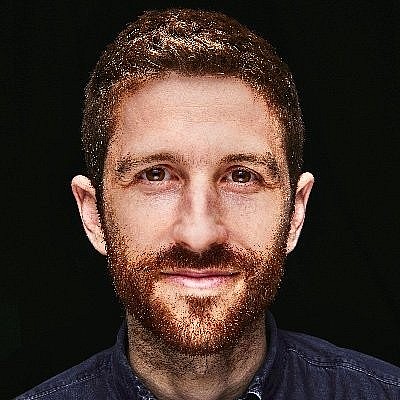 |
| Tristan Harris, Co-Founder & President of the Center for Humane Technology |
As Harris says in The Social Dilemma, “It has its own goals and it has its own way of pursuing them by using your psychology against you.”
It's not a tool, despite what social media would have us believe. It annoys us by sending us notifications and emails on a regular basis. It entices and manipulates us.
Lights at the end of the tunnel
Individuals should establish healthy social media habits to protect themselves against manipulation and to improve things. Set a time limit for yourself and turn off notifications to cut down on screen time. Avoid being pulled into an endless scroll by knowing what task you want to perform on social media. Take a break from social media if it makes you feel worried or depressed.
This is high time to call for social media regulations. Right now, there are a few recent regulations focused on data privacy. But according to Kristina Podnar, a cybersecurity expert, we need to go further.
Podnar says that we should also address “addiction to platforms, manipulation of humans, impersonations and identity hijacking, truth in content, as well as the ethical measures that need to be in place in order for platforms to function with integrity,” according to Bustle.
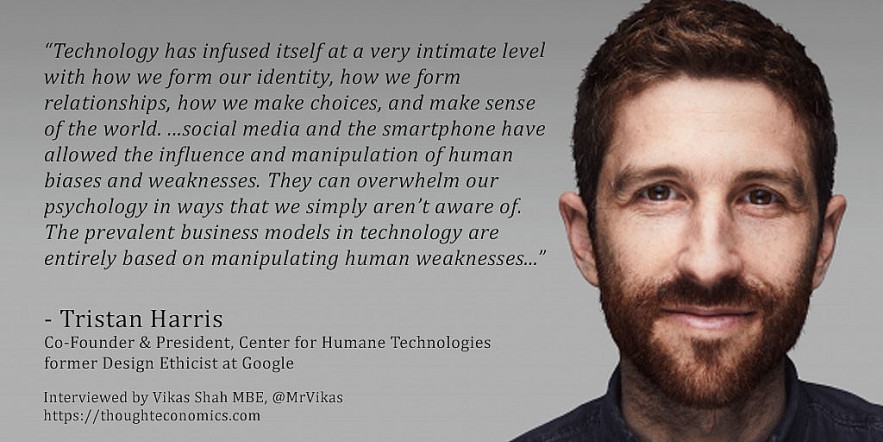 |
| The statement from who is called the “closest thing Silicon Valley has to a conscience,” by The Atlantic magazine |
It’s possible to save the social media landscape. The Center for Humane Design(co-founded by Tristan Harris) outlines the principles of humane design. They include obsessing over values rather than engagement metrics, nurturing mindfulness instead of vying for attention, and binding growth with responsibility instead of just maximizing growth.
Jaron Lanier, the founding father of virtual reality, who was featured in The Social Dilemma, is one of the leading voices for redesigning the way the internet and social networks work, believes that social media can be fixed.
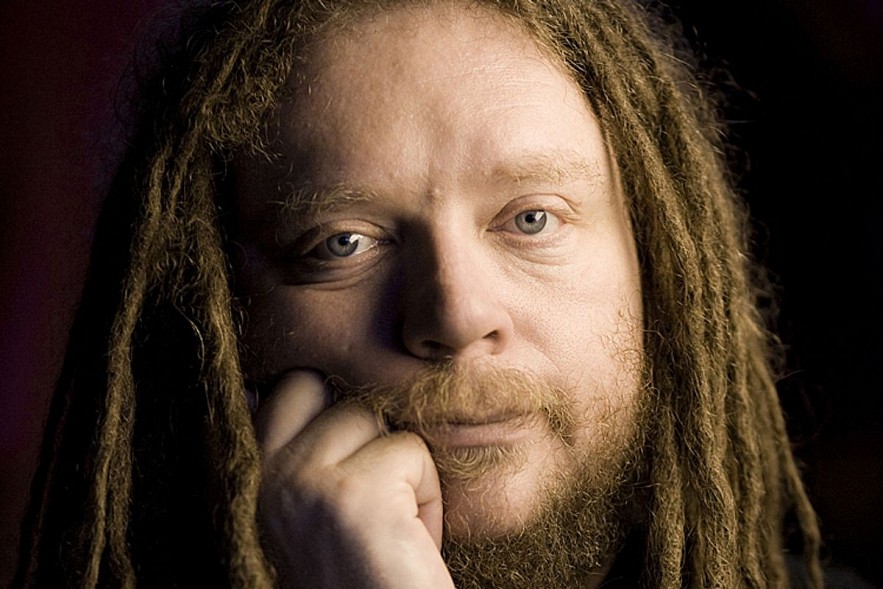 |
| Jaron Lanier, a founder of the field of virtual reality |
Lanier says in a podcast interview on Too Embarrassed To Ask, “I very strongly feel that we can isolate the good parts of social media which are very real and very true and just cut off and incinerate the bad parts, and the bad parts can be described very clearly as a manipulation engine… And that’s the thing that needs to be shut down.”
It is in our hands to either wait for social media firms to burn their problematic parts–those that generate the most revenue–or we can take collective action to reclaim our attention.
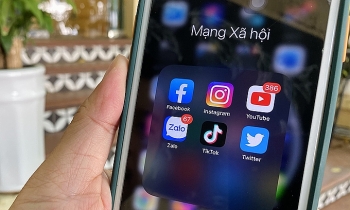 | Vietnam Tightens Google, Facebook Ad Regulations Vietnam has issued a new decree to tighten cross-border ad regulations for foreign companies like Google and Facebook |
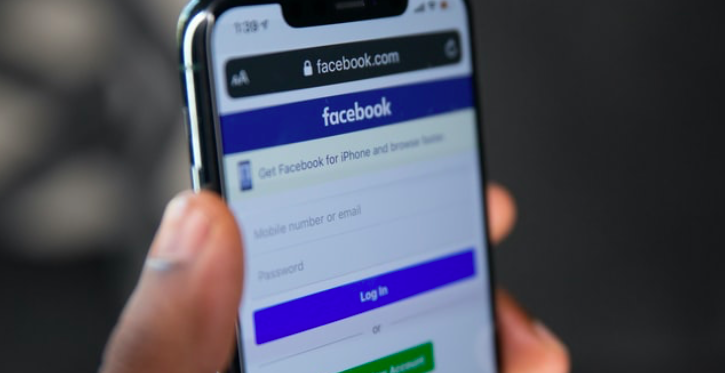 | Facebook to Let Users Become 'Experts' to Cut Down On Misinformation Facebook said last week that it would let the administrators in its groups appoint users as "experts." |
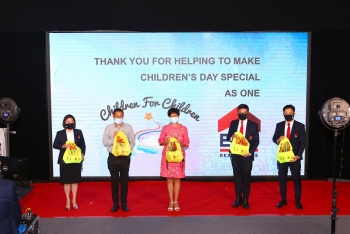 | SINGAPORE - Media OutReach - 10 March 2021 - Singapore's largest international real estate agency, ERA held its annual Asia Pacific Business Conference virtually for ... |
Recommended
 World
World
Trump’s Tariff Pause: A Strategic Move from “The Art of the Deal”?
 World
World
"Indian Navy's participation in AIKEYME exercise matter of great happiness": Admiral Dinesh Kumar Tripathi
 World
World
ASEAN and US Tariff Dilemma: Hybrid Approach to Global Trade Tensions
 World
World
Vietnam Affirms Its Active and Responsible Role at UNESCO
 World
World
US Imposes 125% Tariff on China, Pauses Tariffs for 90 Days on Over 75 Countries
 World
World
"Massive financial deficits with China, EU can only be cured with tariffs": Donald Trump
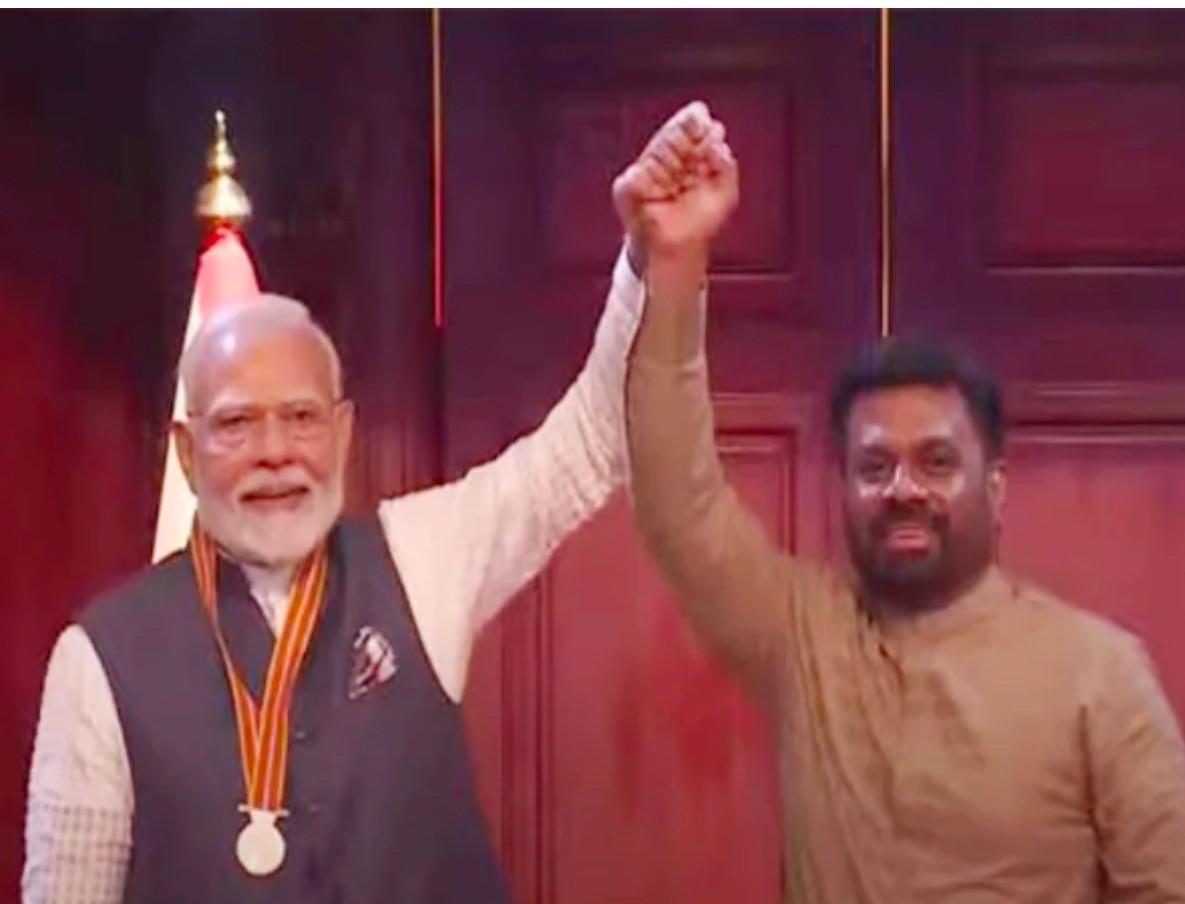 World
World
Modi’s Sri Lanka Visit: A Diplomatic Triumph Amid Regional Tensions
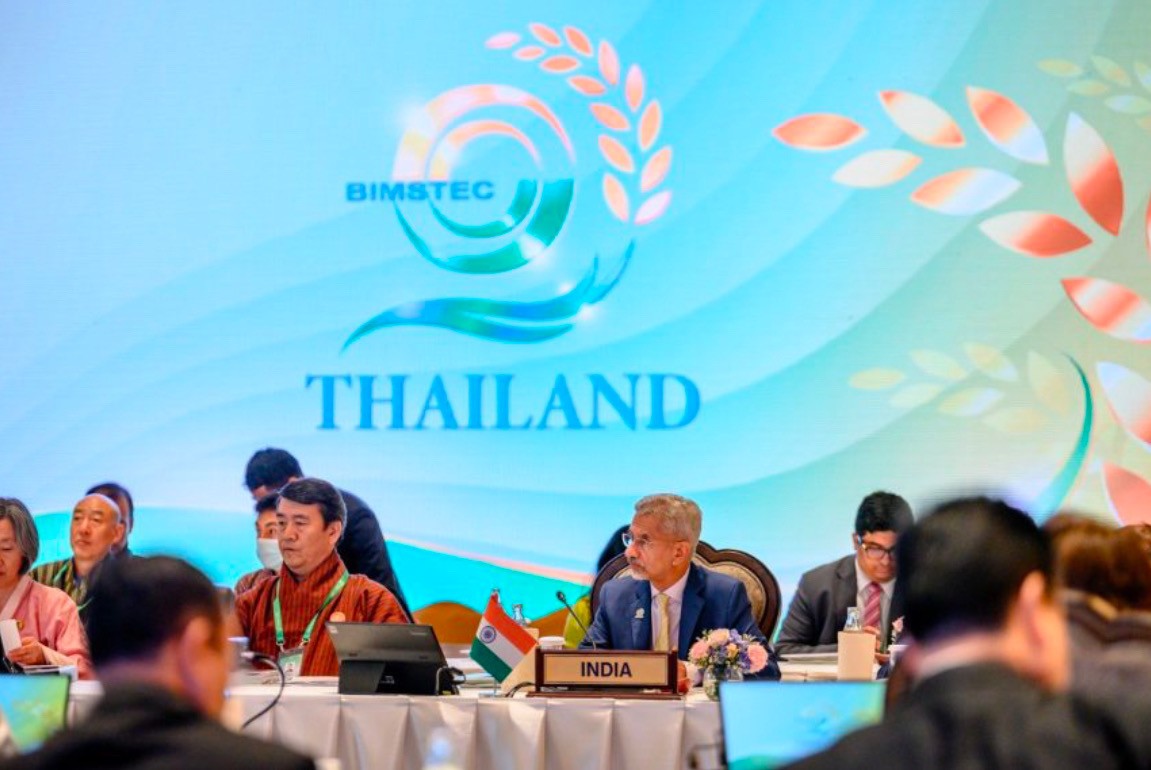 World
World


